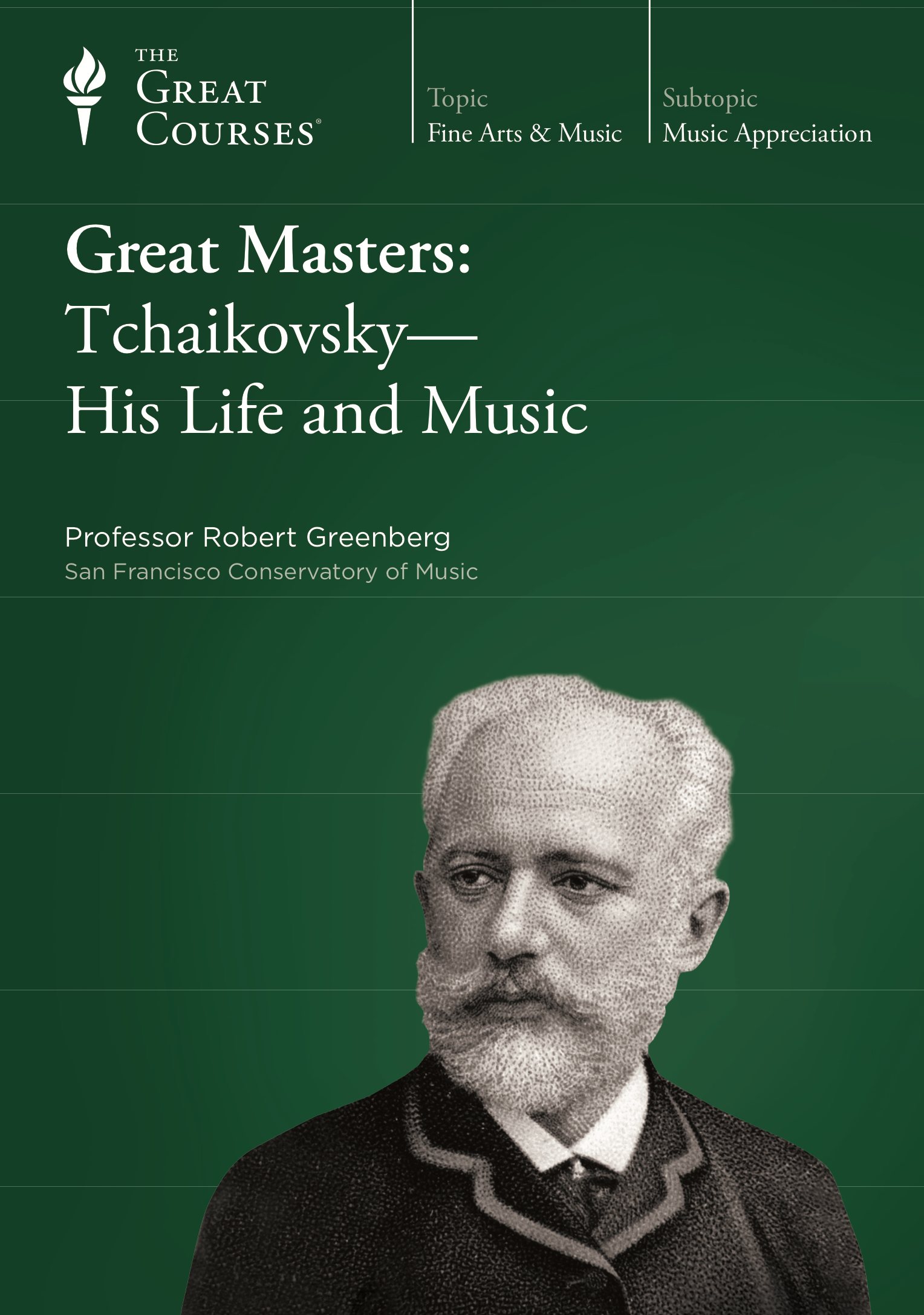The life of Peter Ilyich Tchaikovsky (1840–1893) exhibits as close a link as you will find anywhere between an artist’s inner world and the outward products of that artist’s creative activity. As a man, Tchaikovsky was defined by and indivisible from his music, which became an outlet for all the shifting moods of his turbulent soul. As Professor Robert Greenberg says, “If Tchaikovsky felt it, it found a way into his music.”
The Details
As an artist—and it is worth recalling that he was the first full-time, formally trained, professional composer in Russian history—Tchaikovsky walked a fine and difficult line between his Romantic penchant for expression and the demands of Classical structure.
This delicate balancing act—between heart and head, emotion and reason, release and control, Russian expressive content and German technique—is a key to his music that you find amply illustrated by Professor Greenberg’s musical selections and commentary.
The Life and Music of Tchaikovsky
As was the case with Beethoven, the serious personal and psychological problems that plagued Tchaikovsky also profoundly enriched his music, opening up a font of expression that an equally talented but less troubled man might never have tapped.
From the suffering of the man, then, came the triumph of the artist—a triumph without which we would not have Swan Lake, the Serenade for Strings, or the Pathétique Symphony.
Is this a sad irony, a thrilling testament to the transforming power of art, or perhaps both?
Professor Greenberg points out that the essence of Tchaikovsky as a man and great artist is heard best in compositions that are often overlooked because of the tremendous popularity of his more famous orchestral works and ballet scores.
After taking this course, then, you will be among the relative few who know the true significance of such marvelous but underappreciated chamber pieces as the String Quartet no. 3 in E-flat Minor, op. 30.
In smaller, rarely heard works like this, Tchaikovsky reveals himself, his world, and his experience with deeply moving intensity.
“Tchaikovsky’s music remains an enduring monument to a man who was not only a great composer but also a highly popular composer,” says Professor Greenberg.
“He possessed the unique ability in his day to blend the fire and passion of Russian nationalism with Germanic compositional technique. He infused his music with a rare intensity of expression and a rich harmonic and melodic beauty that guarantee his place among the greatest contributors to the repertoire.”
Great Masters: Tchaikovsky — His Life and Music Lectures
- Introduction and Early Life
- A Career in Music
- The First Masterworks
- Maturity
- Three Women—Tatyana, Antonina, and Nadezhda
- “My Great Friend”
- “A Free Man”
- The Last Years, or Don’t Drink the Water





